
Traveling the Long Road to Clinical Translation of Tissue Engineered Bone Grafts
Treating large craniofacial bone loss due to congenital defects, trauma, or cancer resection remains a huge clinical challenge. Approximately 200,000 fractures require bone transplantation annually in the US at the cost of $2B. Tissue engineering, where the patient’s own cells are combined with porous scaffolds to guide their development into new bone tissue, provides a viable means of obtaining ‘autologous’ bone grafts for the treatment of large bone defects. Successfully applying tissue-engineered grafts, however, requires overcoming key scientific, regulatory, and practical hurdles. To address these, Warren Grayson’s lab has focused on the development of a point-of-care stem cell-biomaterial based strategy for treating massive craniomaxillofacial bone loss.
In his talk, Warren Grayson will outline novel technologies and strategies they are developing to advance the bone tissue engineering field with consideration for the regulatory and practical concerns. He will also describe ongoing studies intended to move us closer to realizing human clinical trials.
Learning Goals:
1. Bone tissue engineering strategies.
2. Differentiation potential of adipose-derived stem/stromal cells.
3. Promise and limitations of 3D-printing strategies.
4. Pre-clinical animal models of bone regeneration.
The Summer Seminar Series is co-sponsored by INBT and the Physical Sciences-Oncology Center.
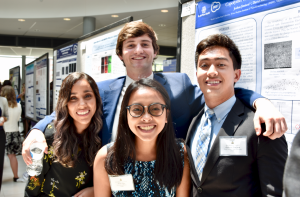
Johns Hopkins Career, Academic, and Research Experiences for Students (CARES) Summer Symposium was launched in 2014 through the collaboration of 10 summer programs. This annual symposium brings together graduate, undergraduate and high school students who have participated in one of the Johns Hopkins CARES summer programs to showcase diverse STEM talent.
We welcome you to come to the event and see all the hard work done by our Nanotechnology for Biology and Bioengineering Research Experience for Undergraduates (REU) program interns. Learn more about our REU program.
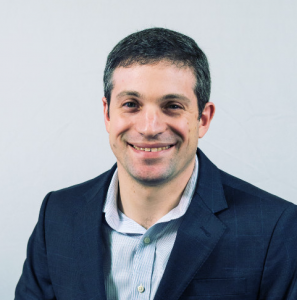
We are pleased to welcome our last guest speaker in our Summer Seminar Series, David Sebba, PhD from BD. David Sebba will be presenting, “Developing a Career in Industry.”
Dave Sebba is an Associate Principal Scientist, R&D Innovation at BD’s Diagnostic Systems business. Dave partners with Business Development, R&D, and business leaders to identify and assess new technologies and business opportunities and set strategic priorities.
Dave joined BD in 2012 where he had roles ranging from Staff Scientist to Senior R&D Manager. As Senior R&D Manager, Dave led teams focused on developing technologies in the microbiology, immunoassay, and clinical chemistry spaces, often working closely with key external collaborators and clinical sites to demonstrate technology performance in the field.
Prior to joining BD, Dave worked as a Program Manager / Senior Scientist at nanoComposix (San Diego, CA), a rapidly growing startup company, where he developed IVD products and OEM materials for the pharmaceutical, electronics, and cosmetics industries. He holds a PhD in materials science from Duke University and a BS in chemical engineering from Johns Hopkins University.

The Johns Hopkins Biomedical Engineering Department is hosting a seminar with INBT’s director, Sharon Gerecht, as guest speaker. Dr. Gerecht will be discussing, “Guiding 3D Vascular Fate and Assembly.”
Abstract: Vascular differentiation and formation (morphogenesis) takes place in an intricate milieu. This unique microenvironment is situated throughout the body in diverse types of healthy tissues, yet it seems to activates/inhibits similar mechanisms of the microvasculature. Two parameters of this microenvironment seem critical for blood vessel growth and stabilization: (i) the extracellular matrix, which provides critical support for vascular cell adhesion, proliferation, migration, and morphogenesis, and (ii) low oxygen concentrations (hypoxia), which is a critical factor promoting vascularization during embryonic development and tumor growth. In this talk I will present our recent efforts to understand how these physicochemical cues and downstream signaling pathways impact vascular fate and assembly from progenitors and pluripotent stem cells.
Location: Johns Hopkins Homewood campus, Clark Hall 110. Overflow will be in Kavli 316.
Reception to follow, Clark Hall first floor lobby.
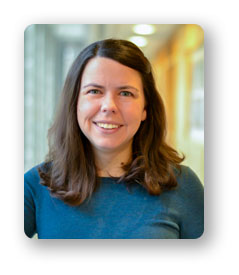
“Ecology Meets Cancer Biology: Keystone Cancer Cells are Actuators of Therapy Resistance and Cancer Lethality.”
Using cancer ecology to solve the problem of metastasis, Amend’s research is focused on understanding the role of the tumor microenvironment in cancer progression, specifically related to lethal metastasis.
Sarah Amend is an Assistant Professor, partnering with Dr. Ken Pienta to study the ecology of cancer. She was a post-doctoral fellow in the lab and received her undergraduate degree from N.C. State University in Biological Sciences and did her Ph.D. thesis work on contributions of the microenvironment to bone resident cancer at Washington University in St. Louis. She is studying the role of the malignant cancer niche in inducing cancer cell biodiversity.
Please join us for the October session of the Student Research Forum. Students interested in presenting can sign up here.
Guest speaker: Kerrie Carden, Director of Student Ventures at JHTV FastForward
To provide more teamwork opportunities and build bonds among graduate students and postdoctoral fellows, INBT implemented the Student Research Forum. The forum is built upon the collaborative core that INBT was founded on and provides opportunities for students to engage with each other on research topics and other professional aspects of research and training.
Each month during the academic year, the group gathers to hear student presentations on research or a business proposal. The presenters receive feedback from their peer audience on how to refine their research project or proposal. One to two guest speakers from a relevant industry organization is also present to provide feedback to the presenters, but to also discuss other topics with students such as research in industry, a career in industry, and how academia and industry work together. Students can use the time to network with peers they do not normally interact with in the INBT labs. At the end of each semester, those presenters compete in a final competition for a cash prize to use toward their research or proposal.
*The Student Research Forum is for INBT graduate students and postdoctoral fellows only.*
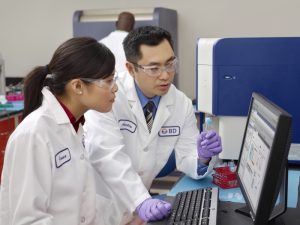
Please join us for our fall information session about our Maters Industry Co-Op program. The program provides students with career training while employed with an industry partner. Students will gain work experience, network, and build technical skills to prepare for a competitive job market. Plus, you will earn a salary and receive college credit during employment.
This program is open to engineering students in Chemical and Biomolecular Engineering, Materials Science and Engineering, and Mechanical Engineering.
Refreshments will be served.
More information can be found on our Maters Co-Op webpage.
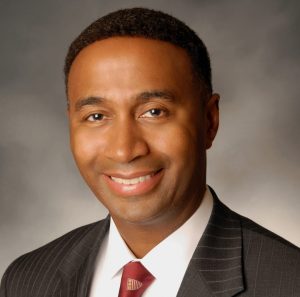
Please join us as we welcome guest speaker CAPT (Dr.) Hassan A. Tetteh, MD, MBA, MPA, MS, Health Mission Chief, Department of Defense, Joint Artificial Intelligence Center. Dr. Tetteh will be discussing, “The Future of AI, Health, and Creativity.”
Abstract: An Artificial Intelligence (AI) revolution is not coming; the revolution is already here. AI is fundamentally changing the landscape of healthcare delivery and many leaders are not prepared. A new paradigm of health care delivery is on the horizon. Artificial intelligence, in this context, is defined as intelligent human behavior simulation in computers. Like electricity in the past, AI represents the general-purpose technology (GPT) of our era. With inherent challenges, threats, and opportunities ahead, ‘future-oriented’ strategies should be implemented by leaders that leverage AI to create better, stronger, and more relevant healthcare organizations to care for patients and promote health and wellness in the 21st century and beyond.
Like many other industries, healthcare is undergoing significant change. Five key drivers impact the rapid advance in Artificial Intelligence (AI) technology as it relates to the potential application in healthcare. Computer science’s early limitations in computing power, data sources, and expertise are now mitigated. Today, the difference is the convergence of factors that make the potential for AI more advanced now than in the past. Five key drivers impact the rapid advance in AI technology:
1. Exponential growth in computer power over the past decades
2. Availability of large datasets for machine learning training
3. Machine learning technique improvement
4. Increased commercial and government investment in AI research
5. Use of electronic health records and digital health information
Collectively, the five drivers of AI technology coupled with the abundance of data stored on patients may help to understand disease at a fundamentally better level to facilitate treatment and therapeutics to help patients more effectively and efficiently. This educational program highlights how AI can be specifically leveraged to improve quality across the healthcare enterprise.
Learning Objective 1: Define AI technology platforms, recognize the lexicon of AI terminology, and select the specific AI technologies for practical application within a healthcare organization.
Learning Objective 2: Recognize the risk of not leveraging AI, identify the correct approach to AI, and adopt the essential steps required to achieve transformational change using AI.
Biography: Dr. Hassan A. Tetteh is a US Navy Captain and Associate Professor of Surgery at the Uniformed Services University of the Health Sciences and adjunct faculty at Howard University College of Medicine. He was a Robert Wood Johnson Health Policy Fellow from 2012-13, assigned to the US Congress, Congressional Budget Office, (CBO), and recently served as the Chief Medical Informatics Officer (CMIO) for the United States Navy. Currently, Tetteh serves as the Health Mission Chief for Warfighter Health at the Joint Artificial Intelligence Center (JAIC) in the Department of Defense (DoD), and he is a Thoracic Surgeon for MedStar Health and Walter Reed National Military Medical Center. He leads a Specialized Thoracic Adapted Recovery (STAR) Team, in Washington, DC, and his research in thoracic transplantation aims to expand heart and lung recovery and save lives.
A native of Brooklyn, New York, Tetteh received his BS from State University of New York (SUNY) at Plattsburgh, his MD from SUNY Downstate Medical Center, his MPA from Harvard’s Kennedy School of Government, his MBA from Johns Hopkins University Carey Business School, and his MS in National Security Strategy with a concentration in Artificial Intelligence from the National War College. He completed his thoracic surgery fellowship at the University of Minnesota and advanced cardiac surgery fellowship at Harvard Medical School’s Brigham and Women’s Hospital in Boston.
Tetteh is a bestselling author of four books including: Gifts of the Heart, Star Patrol, The Art of Human Care, and Seven Pillars of Life. He has finished twenty marathons, and delivered the popular TEDx talk, From Death to Life, based on his work in transplant surgery. Tetteh is board certified in thoracic surgery, general surgery, clinical informatics, and healthcare management, and is a Fellow of the American College of Surgeons and Fellow of the American College of Healthcare Executives.
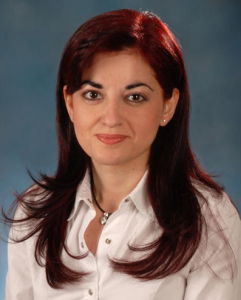
Please join us for our second guest speaker in our Women in Cancer Research Fall Mini Seminar Series, Aikaterini Kontrogianni-Konstantopoulos, and her talk, “Giant Obscurins: Novel Tumor and Metastasis Suppressors in Breast Epithelial Cells.”
Abstract: Obscurins, encoded by the single OBSCN gene, are giant (720-860 kDa) cytoskeletal proteins with scaffolding and regulatory roles. The OBSCN gene is highly mutated and/or epigenetically modified in multiple types of cancer, including breast cancer. Consistent with this, Kaplan-Meier-Plotter data sets have indicated that low OBSCN levels correlate with significantly reduced survival and relapse-free survival in breast cancer patients. Our research focuses on interrogating the impact of obscurins’ loss from normal breast epithelial cells, the delineation of the molecular alterations that take place downstream of obscurins’ loss, and the development of novel and effective ways to restore obscurin expression and/or functionality.
Biography: Aikaterini Kontrogianni-Konstantopoulos research focuses on the elucidation of the roles of cytoskeletal and membrane-associated proteins as structural and signaling mediators. Using the muscle and epithelial cell as model systems, my laboratory has pioneered the molecular and functional characterization of the obscurin subfamily and its binding partner Myosin Binding Protein-C slow in health and disease.
In 2007, she joined the Department of Biochemistry and Molecular Biology at the University of Maryland School of Medicine as Assistant Professor in the tenure track. Using the muscle and epithelial cell as model systems, her laboratory has pioneered the molecular and functional characterization of major cytoskeletal and membrane-associated proteins as structural and signaling mediators in health and disease.
From Polymers to DNA, Self-Assembled Nanomaterials that Target Cancer
Self-assembly of polymers or biological molecules is an attractive method for engineering supramolecular biomaterials for biomedical applications. Kokkoli’s research focuses on the design and characterization of novel amphiphilic molecules that have the tendency to self-assemble spontaneously in different structures in water. She will discuss two examples, the design and characterization of a new thermosensitive and biodegradable polymer that can be used for the local delivery of targeted nanoparticles or different therapeutics, and the assembly of ssDNA-amphiphiles into nanotubes used to target glioblastoma multiforme (GBM), in vitro and in vivo in an orthotopic mouse model of GBM, in the absence of any targeting moiety.
Efie Kokkoli, a targeted drug delivery specialist, is a professor in the Chemical and Biomolecular Department at the Whiting School of Engineering. Her research focuses on the areas of DNA nanotechnology, multi-targeted gene and drug delivery, and the design of biopolymers and responsive hydrogels. With the goal of directing nanoparticles capable of carrying cancer drugs to tumor sites while sparing non-cancerous areas, her group concentrates on designing biomaterials ranging from polymeric nanoparticles to DNA nanotubes that respond best under certain conditions, like temperature or pH, and have specificity for cancer cells.


